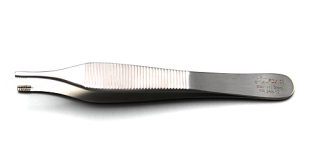The lymphatic system is a complicated immune system component that filters substances in the body. Lymphocytes are the key players in this process, and they move around the body through lymph nodes on their way to their targets. The term “lymphadenopathy” describes the enlargement of lymph nodes. The lymphatic system’s fluid is filtered by a network of tiny glands called lymph nodes. They are divided into sections called follicles, which are further divided into B zones and T zones, which are the base of lymphocytic maturation.
The abnormal growth of lymphocytes is mostly caused by inflammation, infection, or cancer, so doctors need to do a thorough history and physical exam to look for lymphadenopathy. When checking for lymphadenopathy, it is important to conduct a thorough examination of all relevant anatomic regions. These regions include the supraclavicular, neck, axillary, and inguinal regions.
When lymph nodes get bigger, it’s often a sign of a long-known but not life-threatening disease. On the other hand, if the doctor notices that the patient’s supraclavicular lymph nodes are enlarged, it’s a strong indicator that cancer is developing in the body.
Supraclavicular Lymphadenopathy Symptoms
A network of lymph nodes, vessels, and organs runs throughout the body to form the lymphatic system. Large numbers of lymph nodes are located in the region of the head and neck. This region, along with the armpits and the groin, is home to lymph nodes that are prone to swelling.
The presence of swollen lymph nodes indicates a problem within the body. Some of the signs of swollen lymph nodes are:
- Pain and tenderness in the lymph nodes.
- Lymph node enlargement is mostly as large as a kidney bean or a pea.
The patient mostly experiences the following symptoms along with swollen lymph nodes:
- Fever.
- A runny nose, sore throat, fever, and other signs of an upper respiratory infection, depending on the underlying cause.
- Generalized lymph node enlargement throughout the body. If this happens, it is mostly a sign of an infection, like HIV or mononucleosis, or a problem with the immune system, like rheumatoid arthritis or lupus.
- Hard, fixed, rapidly expanding nodes are often signs of lymphoma or cancer.
- Sweating at night.
Supraclavicular Lymphadenopathy Causes
A rise in the number of the body’s about 600 lymph nodes is usually indicative of a decline in the organism’s health or, more accurately, the presence of specific pathogenic conditions. Both physical trauma and the presence of germs mostly cause lymph nodes to swell, which often leads to an increase in the size of the affected lymph node. In this particular instance, the diseased process is localized either inside the gland itself or within organs that are placed close to the lymph node. The lymph node is the source from which the gland receives lymph that contains pathogenic microorganisms.
The following factors can contribute to enlarged lymph nodes, particularly supraclavicular lymph nodes:
- Body infection or lymph node infection.
- Bacterial infections (such as brucellosis, tuberculosis, syphilis, and many more).
- Tumors that are cancerous and spread to the lymph nodes.
- Endocrine disorders (sarcoidosis, rheumatoid arthritis, endocrinopathy, etc).
- Tumors and systemic connective tissue diseases.
- Chlamydia.
- Infections caused by fungi, viruses (such as histoplasmosis and atinomycosis), parasites, and cytomegaloviruses (such as HIV and viral hepatitis) (toxoplasmosis, giardiasis, etc).
Supraclavicular Lymphadenopathy Complications
Complications from enlarged lymph nodes are possible. In some situations, the lymph node becomes enlarged significantly and encloses surrounding body parts. This is a dangerous and incapacitating issue that necessitates rapid medical or surgical intervention.
Axillary lymph nodes, for instance, are mostly linked to the compression of axillary arteries and nerves. The intestines often get obstructed due to a lymph node’s enlargement within the abdomen, which induces intestinal compression.
If the lymph node enlargement is caused by an untreated infection, an abscess (a pus-filled cavity) develops, necessitating incisional drainage and medicines. The skin beneath the swollen lymph node gets infected as well.
Supraclavicular Lymphadenopathy Treatment
In general, lymph node swelling responds poorly to medical intervention. Treatment of the underlying cause results in the elimination of lymph node swelling.
- Ibuprofen (Advil, Motrin), acetaminophen (Tylenol), and other over-the-counter (OTC) painkillers like these are mostly used to lessen discomfort and swelling.
- If a lymph node enlargement produces local discomfort, a warm, moist compress often helps relieve the pain.
- Medication for autoimmune diseases including rheumatoid arthritis and lupus is also recommended.
- To reduce swelling, doctors also prescribe corticosteroids like Prednisone, Medrol, or Decadron.
- Antiviral drugs are sometimes used to treat viral infections.
- Antibiotics are used to treat bacterial illnesses.
- Cancer treatment options include chemotherapy, radiotherapy, and surgical removal of the disease.
The length of time necessary for a swollen lymph node to go away varies greatly and is directly proportional to the underlying cause of the swelling.
- If an autoimmune disorder is a reason for enlarged lymph nodes, the nodes often become smaller during times of remission but then swell back up to their original size when the condition returns to its active state.
- If an infection is the source of swollen lymph nodes, the condition often improves after a few weeks. It is usual for lymph nodes to remain swollen after an infection is treated.
- If lymph nodes are enlarged as a result of cancer, the lymph nodes may remain enlarged throughout the therapy, depending on the type and stage of cancer and whether it is spread to other parts of the body.
 Health & Care Information
Health & Care Information 


